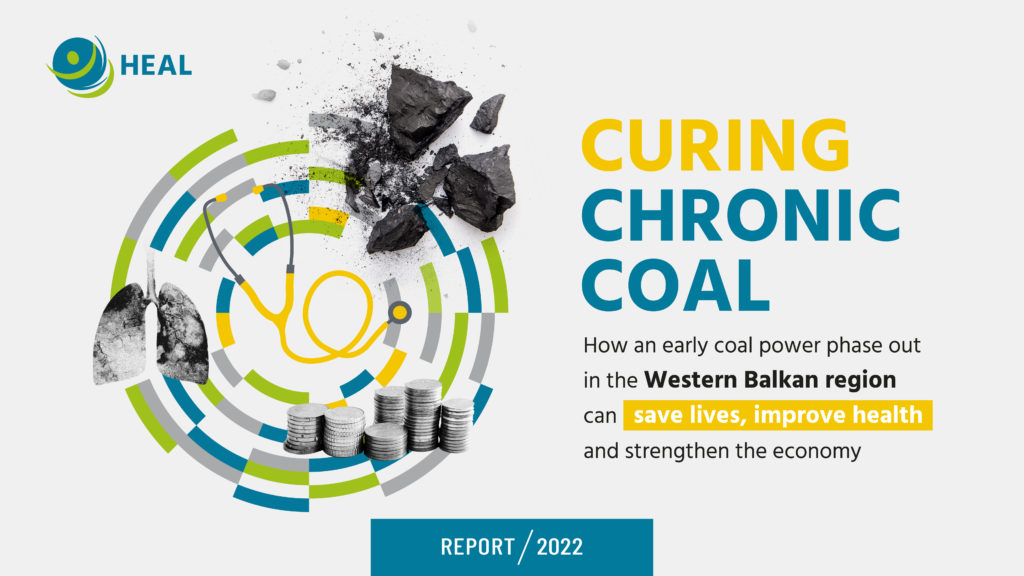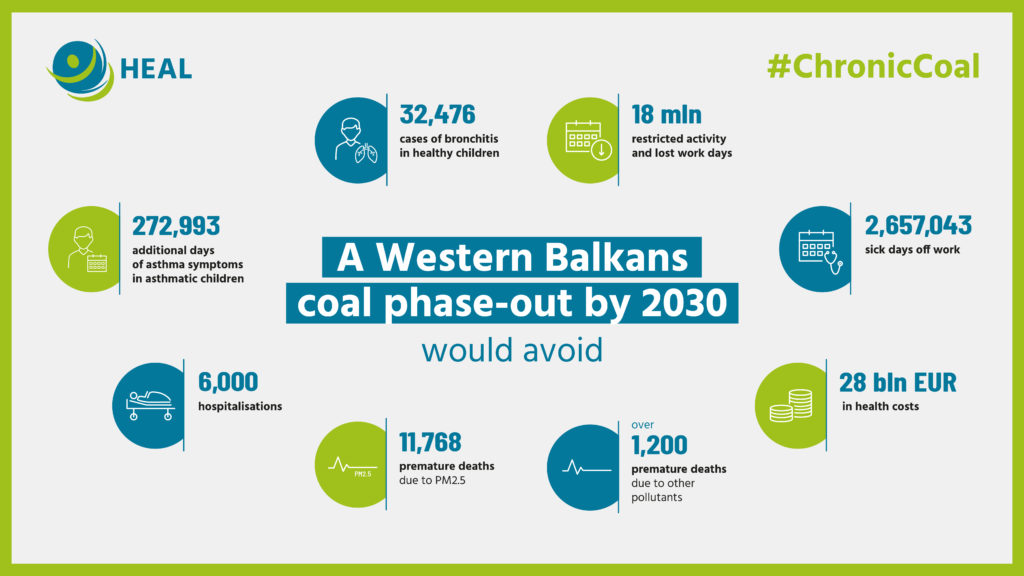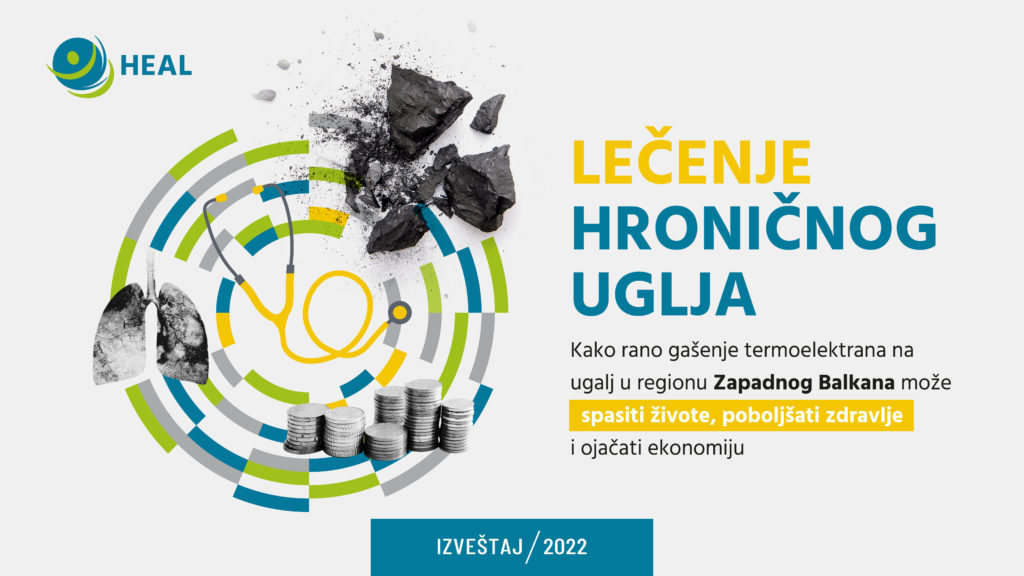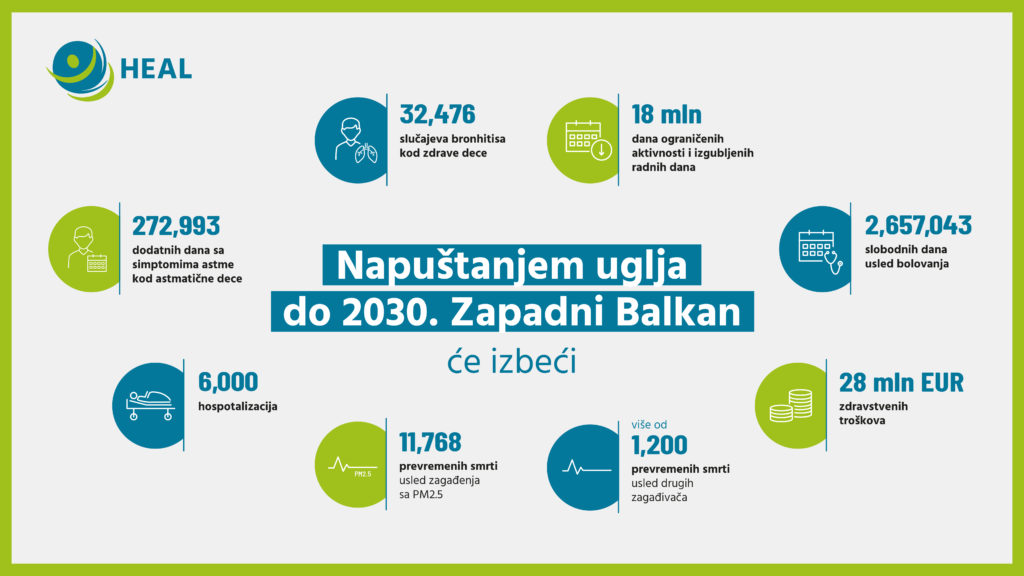A new report by the Health and Environment Alliance (HEAL), published today, shows that phasing out coal power in the Western Balkan region by 2030 instead of 2050 will bring a significantly greater reduction of illness and, ultimately, early deaths, and will also increase productivity and reduce health costs to society.
The World Health Organization (WHO) says that no level of air pollution can be considered ‘safe’; and the science on how air pollution harms our health keeps growing. Breathing in particulate matter, even at low levels, can lead to physiological changes in the body that damage health. Poor air quality is also linked to chronic and acute respiratory diseases, such as bronchitis and the aggravation of asthma, which significantly degrades quality of life. Scientists continue to identify new ways that air pollution can harm health, for example, there is increasing evidence linking air pollution to dementia. New evidence has also shown that particles of air pollution travel through the lungs of pregnant women and lodge in their placentas, harming babies before they are born.
 ‘Curing chronic coal – How an early coal power phase out in the Western Balkan region can save lives, improve health and strengthen the economy’ finds that phasing out coal power by 2030 would, vis-a-vis a coal phase-out in 2050, avoid
‘Curing chronic coal – How an early coal power phase out in the Western Balkan region can save lives, improve health and strengthen the economy’ finds that phasing out coal power by 2030 would, vis-a-vis a coal phase-out in 2050, avoid
- 272,993 additional days of asthma symptoms in asthmatic children
- 32,476 cases of bronchitis in healthy children
- 18 million restricted activity and lost work days
- 2,657,043 sick days off work
- 6,000 hospitalisations
- 11,768 premature deaths due to PM2.5 pollution
- over 1,200 premature deaths due to other pollutants
- 28 billion EUR in health costs
 HEAL, on the basis of the analysis, recommends phasing out coal power in the Western Balkan region as early as possible – every day, every year will add to the health and economic burden caused by pollution.
HEAL, on the basis of the analysis, recommends phasing out coal power in the Western Balkan region as early as possible – every day, every year will add to the health and economic burden caused by pollution.
That means:
- Western Balkan leaders to prioritise public health by closing all existing coal fired plants, preferably by 2030
- Avoid false solutions including the conversion of coal plants to gas or biomass.
- Western Balkans’ decision makers to use available EU funds on non-polluting energy options and promote healthy energy while in the same time initiating funding schemes for people that will truly support the production of energy from renewable sources that can self-sustain households
‘’More than 11,000 premature deaths as well as 273,000 asthma days and 2.6 million lost work days demonstrate why air pollution from burning coal is a health emergency. A commitment to protecting health must mean phasing out coal power in the Western Balkan region by 2030. ’’
– Dr Vlatka Matković, Senior Health and Energy Policy Officer, Health and Environment Alliance (HEAL).
 ‘’Air pollution is a serious public health and economic threat to the Western Balkans that needs immediate attention. Curing chronic coal pollution in the region will result in saving hundreds of thousands of lives, and in protecting especially children and newborns.’’
‘’Air pollution is a serious public health and economic threat to the Western Balkans that needs immediate attention. Curing chronic coal pollution in the region will result in saving hundreds of thousands of lives, and in protecting especially children and newborns.’’
– Prof. Dr Zorana Jovanović Andersen, Department of Public Health at the University of Copenhagen and Chair of the European Respiratory Society Environment and Health Committee.
‘’Health experts urge the Western Balkans leaders to implement public health measures that will end the region’s existing burden from air pollution by prioritising the phase out of polluting, health-harming coal power plants as soon as possible.’’
– Prof. Dr Marija Jevtić, Faculty of Medicine University of Novi Sad and Associate Member of the Academy of Medical Sciences of the Serbian Medical Society.








